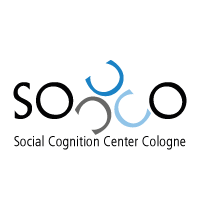Chair Unkelbach Group | Allgemeine Psychologie II
Prof. Dr. Christian Unkelbach
Phone +49-221-470-2001
E-mail christian.unkelbachuni-koeln.de
Address Richard-Strauss-Str. 2, 50931 Köln | Germany
Room 1.A21
Office hours Fridays, 14.00-15.00 (Please register for the Office hours via Email)
Research interests
Social Cognition • Evaluative Judgments • Information Ecologies • Stereotypes and Prejudice • Evaluative Learning • Fluency Effects • Sport Psychology
Key Publications
- Unkelbach, C., Alves, H., & Koch, A. (2020). Negativity bias, positivity bias, and valence asymmetries: Explaining the differential processing of positive and negative information. In: B. Gawronski (Ed.), Advances in Experimental Social Psychology (pp. 115-187). Cambridge, MA: Academic Press. https://doi.org/10.1016/bs.aesp.2020.04.005
- Unkelbach, C., Koch, A., & Alves, H. (2019). The Evaluative Information Ecology: On the frequency and diversity of “good” and “bad”. European Review of Social Psychology, 30, 216-270. https://doi.org/10.1080/10463283.2019.1688474
- Unkelbach, C., & Rom, S. C. (2017). A referential theory of the repetition-induced truth effect. Cognition, 160, 110–126. https://doi.org/10.1016/j.cognition.2016.12.016
- Unkelbach, C., Fiedler, K., Bayer, M., Stegmüller, M., & Danner, D. (2008). Why positive information is processed faster: The density hypothesis. Journal of Personality and Social Psychology, 95, 36–49. https://doi.org/10.1037/0022-3514.95.1.36
- Unkelbach, C. (2006). The learned interpretation of cognitive fluency. Psychological Science, 17, 339–345. https://doi.org/10.1111/j.1467-9280.2006.01708.x
All Publications
Please find a full list of publications here.
Academic distinctions
- Grants:
Speaker Research Unit FOR2150 "Relativity in Social Cognition" (DFG), 2017-2021
Emmy Noether Research Grant, German Science Foundation (DFG), 2009-2013
Feoder Lynen Research Scholarship, Alexander von Humboldt Foundation, 2007-2008
Fulbright Scholarship, Fulbright Commission, 1999-2000
- Editor-in-Chief:
Social Psychology (2013-2016)
- Associate Editor:
Journal of Personality and Social Psychology (2021-)
Experimental Psychology (2011-2012)
Social Psychology (2012-2013, 2016-2017)
- Editorial boards:
Journal of Personality and Social Psychology (2017-2020)
Psychological Science (2012-2019)
Experimental Psychology (2013-)
Social Psychology (2017-)
Social Psychology and Personality Science (2009-2015, 2018-2020)
European Journal of Social Psychology (2007-2014)
